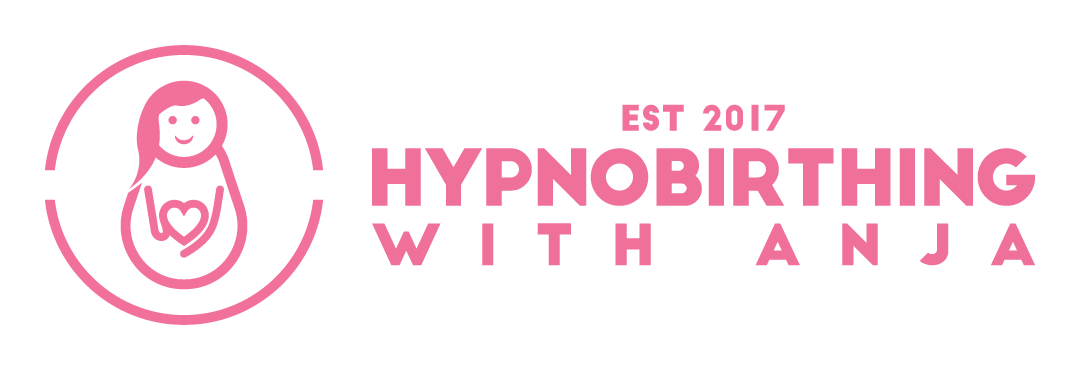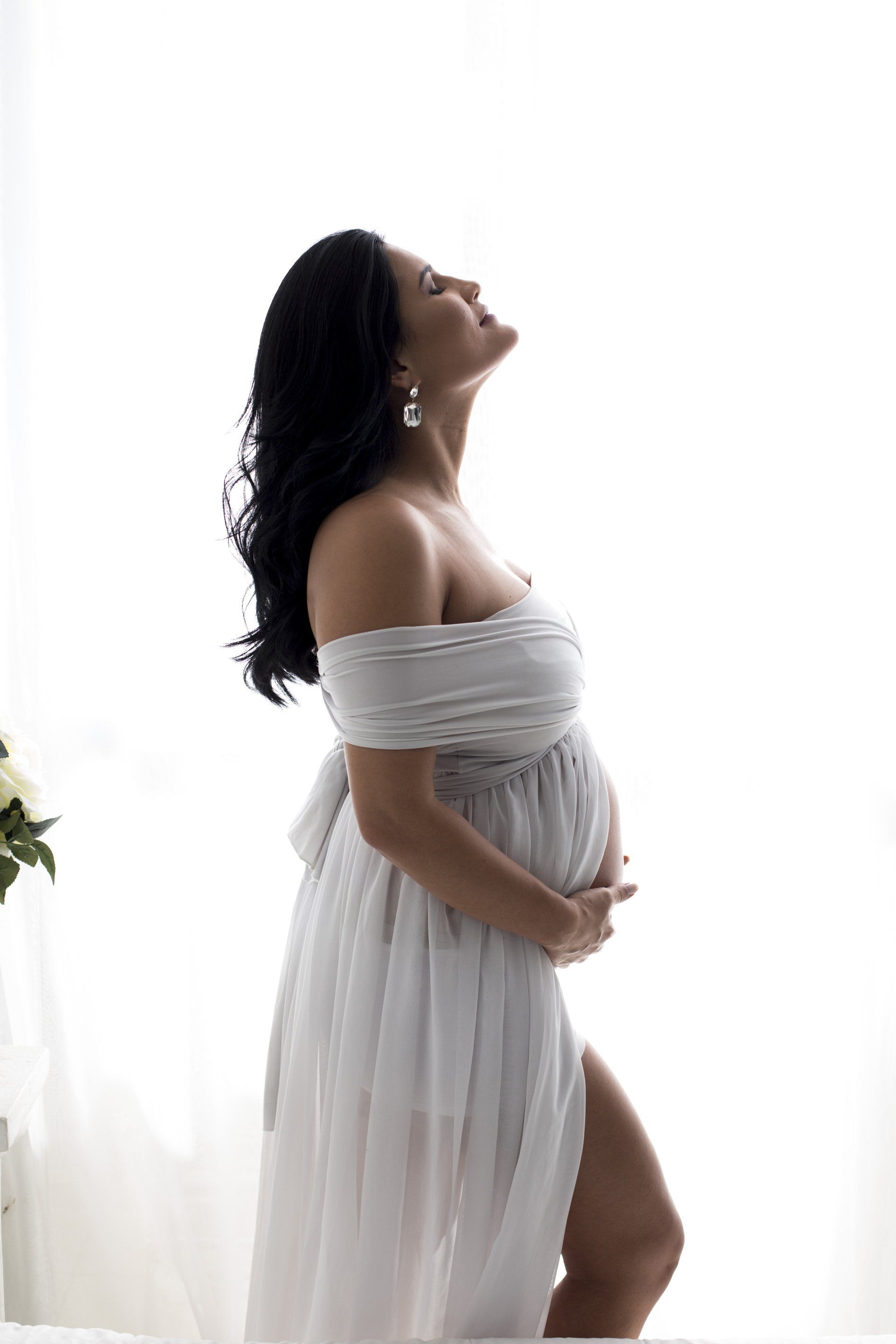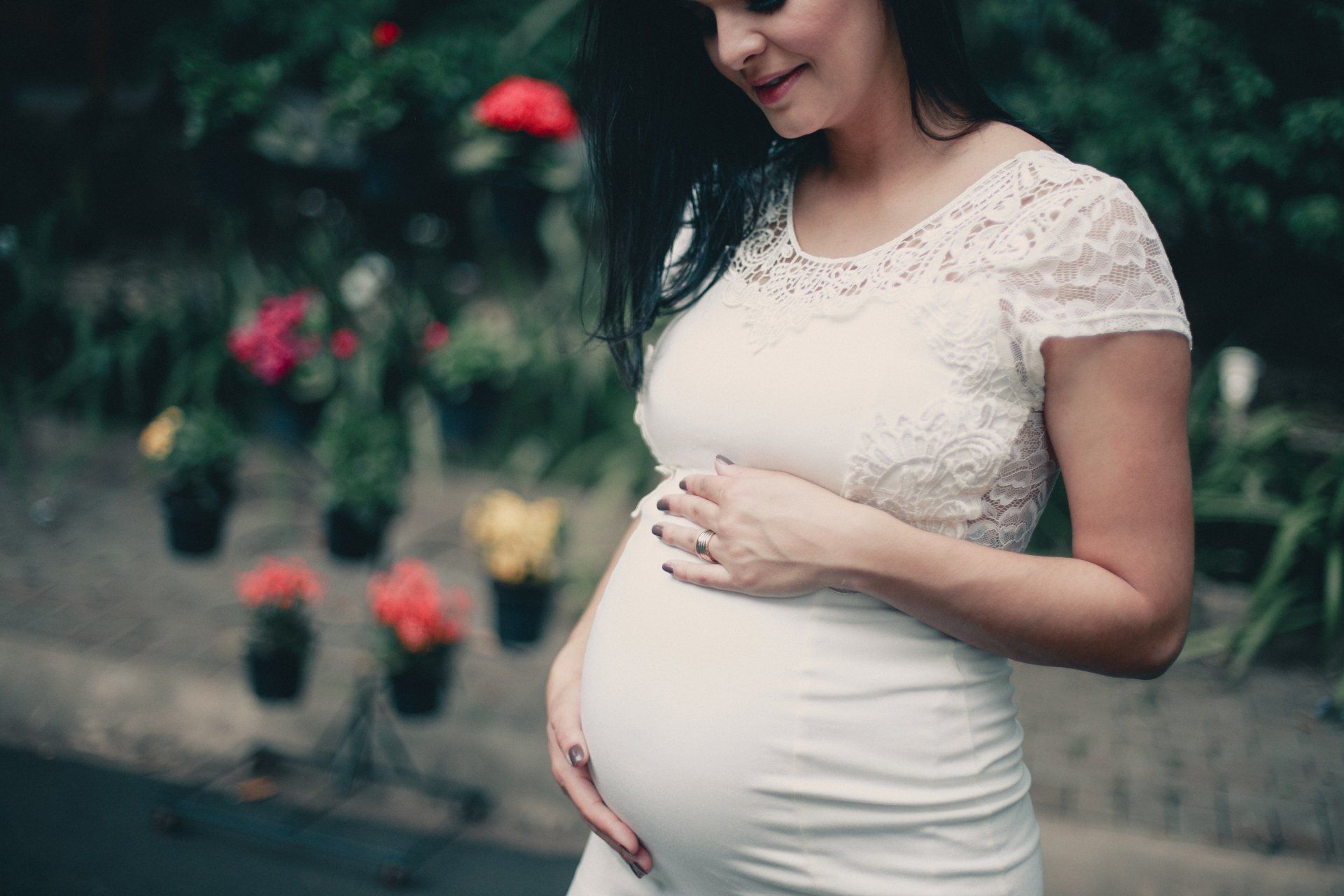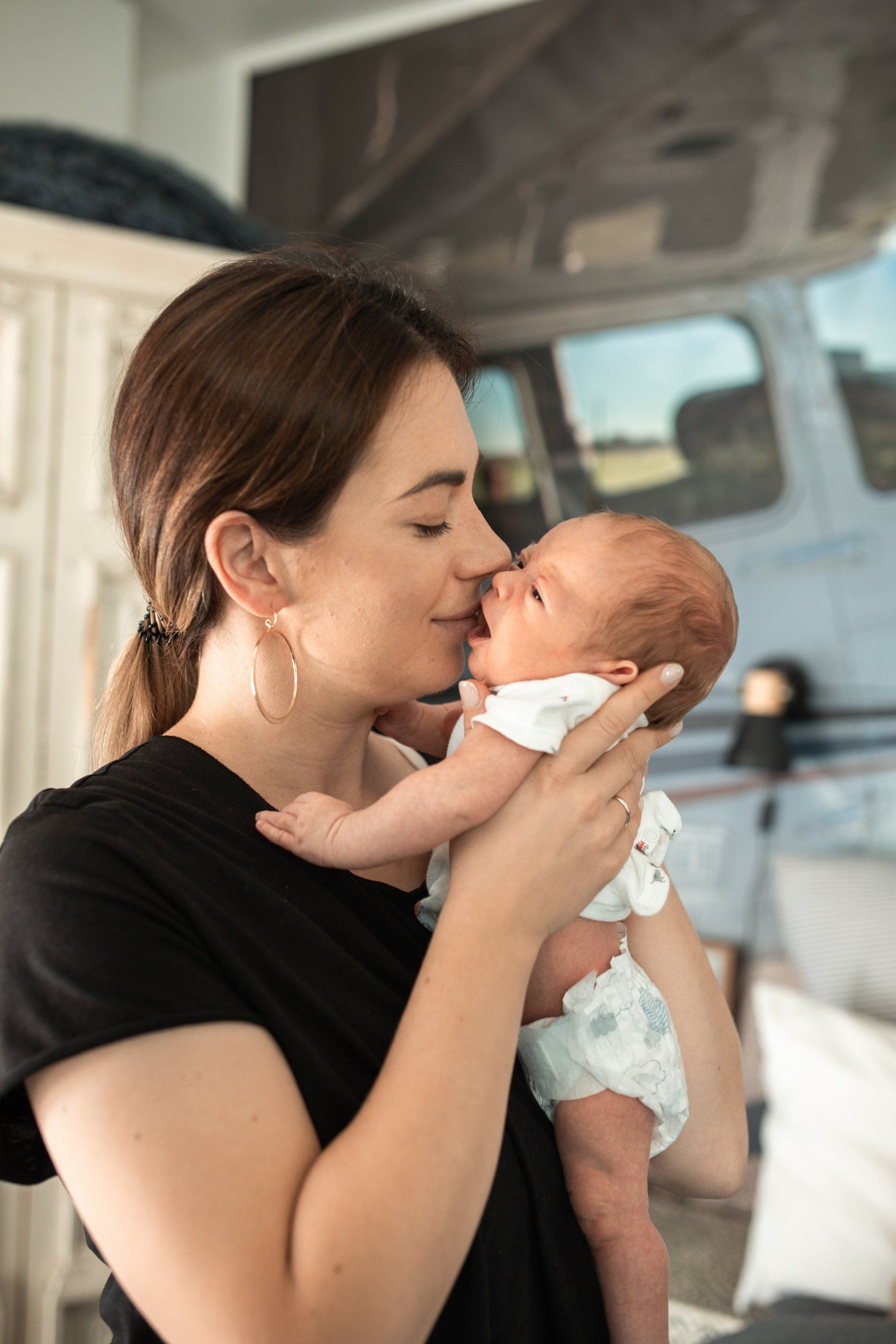How To Combat Fatigue During Pregnancy
Anja Moncrieff • March 26, 2019
What you need to be eating to boost your energy levels now!
Are you feeling really tired now you are pregnant?
Whilst it is quite normal to feel tired during the first trimester as your body does all these miraculous things to start growing your baby and the placenta, the third trimester
is often one of the most tiring stages (from 26 to 40 weeks).
Lots of women develop anaemia or low iron levels during pregnancy.
Every day our bodies uses iron to make haemoglobin, a protein in the red blood cells that carries oxygen to your tissues. When you are pregnant, however, you need double the amount of iron
in your body as it is needed to make more blood to supply oxygen to your baby. If you don't have enough iron stores or get enough iron during pregnancy, you could develop iron deficiency anaemia.
The most common symptoms of anaemia during pregnancy are:
Pale skin, lips, and nails
Feeling tired or weak
Dizziness
Shortness of breath
Rapid heartbeat
Trouble concentrating
How does iron deficiency anaemia during pregnancy affect your baby?
Severe anaemia during pregnancy increases your risk of giving birth prematurely, having a low birth weight baby and developing postpartum depression. Some studies also show an increased risk of infant death immediately before or after birth.
It is so important to check your iron levels and, if they are low, you need to take steps to increasing them. This is really important! Low iron = low energy. Low energy can really affect your mood and could affect your baby.
When you have given birth to your baby, if you have a good level of iron in your body, you will have enough energy to deal with the early days of motherhood more easily. You are likely to be very sleep deprived in the first few months following your baby's birth until they get into a decent sleep pattern. Low iron and sleep deprivation are not a good combo so here are my top tips on how you can raise your iron levels and feel less fatigued.
1. Take an iron supplement. You can buy these yourself or get some from your doctor. They are best taken with a glass of orange juice because Vitamin C helps with iron absorption.
2. If you find that you are getting either bad diarrhoea or constipation when taking your iron pills, I recommend that you switch to liquid iron instead. Even though they taste quite metallic, many liquid iron supplements are mixed with fruit juice to make them easier to consume.
3. Up your intake of red meat.
4. Eat more dark leafy green vegetables such as kale, spinach, greens and rocket. Broccoli is also good.
5. Consume pulses and beans. Lentils, chick peas and black eyed peas are great sources of iron.
6. Up your intake of pumpkin, sesame, hemp and flaxseeds.
7. Eat more almonds and cashew nuts.
8. Introduce spelt, oatmeal and quinoa into your diet.
9. Eat prunes.
10. Have some dark chocolate (with no milk solids in it)
If you can choose a few of these food items each day and incorporate them into your diet, you should start to notice a difference in your energy levels.
One important point I must make before I say bye is DO NOT EAT ANY DAIRY PRODUCTS WHEN EATING YOUR IRON RICH FOODS!
Dairy products significantly reduce the amount of iron you can absorb from food. Ideally you should eat dairy products 4 hours after or before consuming any iron rich foods.
Have a great day and hope that this post has been useful!
P.S If you are feeling anxious or scared about labour and birth in any way
why not check out my amazing online course THE BADASS BIRTHING QUEEN SCHOOL? It is the highest quality, lowest cost hypnobirthing course IN THE WORLD!
Hypnobirthing Blog

Hi, it's Anja again! I hope that this blog post finds you happy and well! I am just going to launch straight into today's blog post! The language that you are surrounded by during pregnancy can have a negative or positive impact on your labour and birth experience. The more you surround yourself with positive language, the more you will start to believe in yourself and trust that you can have the empowering birth experience that you deserve! I didn't really understand the power of positive affirmations until I was pregnant with my little girl back in 2015. Now I use affirmations to help me in lots of areas of my life. They keep me focussed and they keep my mindset on the right track! During pregnancy, using positive affirmations is a great way of building up your confidence for birth. As a pregnancy and hypnobirth coach, I advise the women I work with to surround themselves with as much positivity as possible during pregnancy so that they feel calm, relaxed and optimistic about their babies' births. A great thing to do is to write out a series of positive pregnancy and birth affirmations and display them around your home so that you see them and read them each day. Mirrors are great places. windows, doors and next to your bed. Some women simply read the affirmations when they pass them each day. Other women say them out loud with confidence and conviction. Some ladies choose to record themselves on their phones saying the affirmations and they listen to the recordings each day. The more you expose yourself to positive affirmations, the more you will start to believe the words and the more they will help you to diminish any negative thoughts or feelings. Below is a list of 10 of my favourite pregnancy and birth affirmations. Use them to help you feel good about yourself and confident in your body's abilities to give birth to your baby with ease: 1. I love and respect my pregnant body 2. I am deeply connected to my body and my baby 3. I instinctively know what is best for me and my baby at all times 4. During labour, my mind and body are relaxed 5. My cervix opens with ease 6. I inhale relaxation, I exhale tension 7. I am focussed on a positive and empowering birth no matter what happens 8. I have patience with my baby 9. The sensations I feel during labour cannot be stronger than me because I am creating them 10. Me and my baby deserve to share a calm and happy birth experience together! Did you know I have created the most affordable and accessible birth preparation course in the world? If you really want to get stuck in and feel fully prepared for your baby's birth check out my ONLINE HYPNOBIRTHING COURSE:
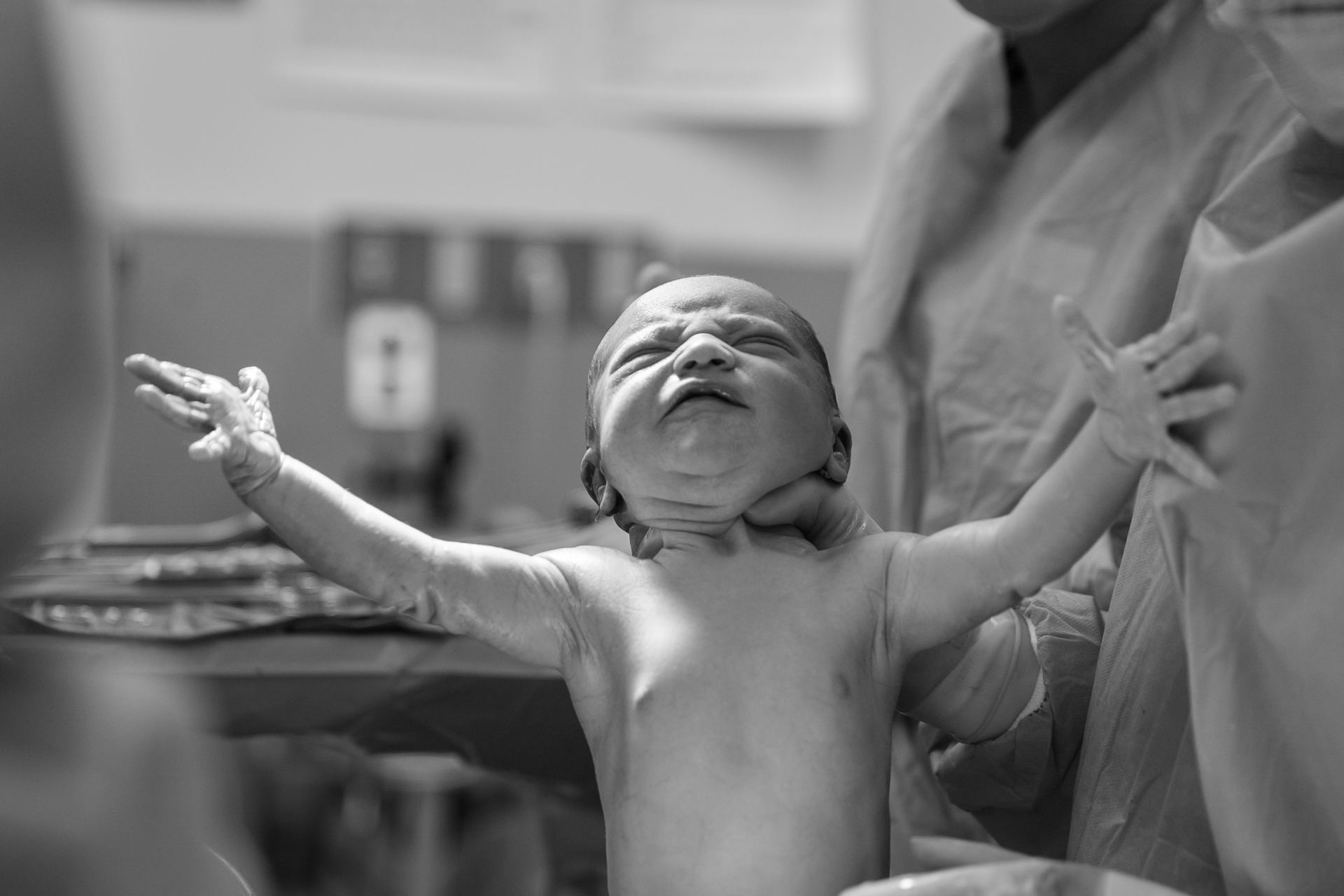
Hello and welcome to my first blog post! I'm Anja, mum to a 3 year old, a pregnancy and hypnobirth coach and passionate about helping pregnant women all over the world to prepare for their babies' births with calm and confidence! In my first post, I am going to share my 5 top tips on how to get over the fear of giving birth! If you are anything like I was when I was pregnant, as your baby bump grows you will most likely be feeling increasingly anxious about what your labour and birth is going to be like! When I hit 6.5 months of pregnancy, the fear and panic really started to set in so I knew that I had to seek support and guidance to overcome my fears before they got the better of me! What I discovered and learned in my third trimester totally transformed the way I looked at childbirth and because of my mindset shift, I went on to have a very peaceful and straightforward home water birth. Now I am going to share my pearls of wisdom in the hope that I can help you! MY TOP TIPS: 1. Trust Your Body Women have, literally, been giving birth for thousands and thousands of years (approximately 200,000 years actually!) and the female body is perfectly designed to give birth! If you observe other female mammals on this planet, they give birth calmly and with no assistance. They go to a dark, quiet and safe place in their habitat, their baby is born and then they go about the rest of their day. I am not saying that you have to be by yourself when you give birth or that you may not need a bit of help. What I am saying is that your body, like other animals' in this world, instinctively knows what to do. So, trust your body’s natural and innate ability to birth your baby! 2.Choose Your Support Team Carefully At your birth, ideally, you should have a birth partner with you. This could be your husband, your intimate partner, your mother, your sister or your best friend. Maybe you fancy having more than one birth partner but make sure that you select people who will have a calming influence on you, who will stand up for you and support all of your decisions. It is no good inviting your mum to your baby's birth if she is going to be a stress head and get into a panic! This will not help you in the slightest! Never feel obliged to invite people to your baby's birth simply because they want to be there. You have to choose wisely and be really mindful about whether the people you are considering are going to provide the emotional, physical and practical support you'll need. Also, during labour, if you don't like a certain midwife or doctor you have the right to ask for someone else to replace them. Get your birth partner to do this for you! There is nothing worse than giving birth with someone there who you don't like! 3. Surround Yourself With Positivity If you are scared of giving birth, I advise that you avoid watching any negative portrayals of childbirth in films or on TV. Don’t listen to people’s negative birth stories! There is always someone lurking about who cannot wait to tell you about their horror story! So, keep all of this horror out of your life starting right now! If someone does start telling you about their traumatic birth experience. you can politely decline by saying “I would love to hear your story, but please could you tell me about it after I have given birth?" Instead, fill your mind with positivity! If you search for positive birth stories on YouTube, you will find loads of amazing vlogs and videos of women sharing their inspiring tales. Also, be sure to write out positive pregnancy and birth affirmations on colourful pieces of paper and display them around your house. Positive language is so powerful and the more you are exposed to positive words related to childbirth, the more you will have faith in your ability to have a positive birth experience yourself! 4. Learn To Relax & Breathe A relaxed mind means a relaxed body. During labour, your mind needs to be relaxed so that your body is free of tension and stress. A tense and stressed body will cause your uterine muscles to tighten and this will lead to pain. When you experience pain, you will become more fearful. You do not want this! Your body needs to be relaxed and tension free so that your baby can smoothly make its way into the world. One of the easiest ways of keeping your labouring body relaxed is to focus on long slow breaths in and out. By focussing on your breathing, you do not focus so much on the sensations of birth. Also, you allow optimal oxygen and blood flow to get around your body and down to your uterus and baby. 5. Educate Yourself To The Max! Educate yourself about everything to do with childbirth. You can attend an antenatal class, read books, blogs, magazines and ask your care team to answer any questions that you have. The best way I found of getting the information that I needed was through attending a hypnobirthing course. By learning about the physiology of birth and how to navigate through each stage of labour with simple but highly effective techniques, I was able to have an amazing intervention-free birth that was so empowering I changed my career completely! The birth of my daughter inspired me so much that I became a qualified hypnobirthing practitioner because I knew that my true calling was to educate and inspire other women so that they could have empowering births too! If you are pregnant, and interested in finding out how I can help you prepare for birth through my amazing online hypnobirthing course, check it out here:
